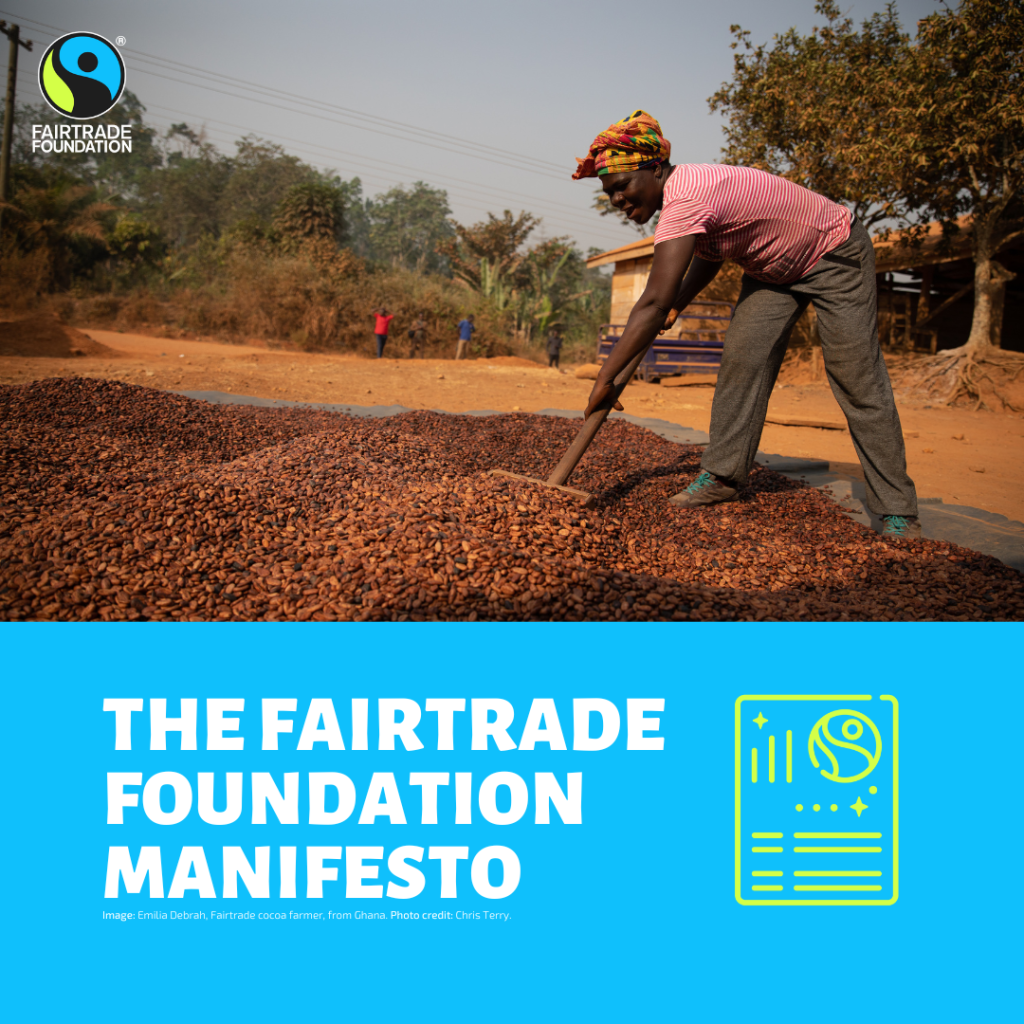We work with government, parliament, business, civil society and other stakeholders to advocate for policies that will make trade fairer.
The Fairtrade Foundation Manifesto

Find out why we need to build fairness and resilience for producers and consumers. Download The Fairtrade Foundation Manifesto
*The Fairtrade Foundation is an independent charity and does not endorse any political party or candidate.
Growing Our Movement For Change Report
Fairtrade submissions
Fairtrade Submission to the Department for Business and Trade Consultation on the UK Trade Strategy, January 2025
The government recently ran a consultation on its new trade strategy and here are the recommendations made by Fairtrade.
We call for a socially and environmentally sustainable approach to trade, that supports growth for the UK economy as well as fair terms of trade for smallholder farmers and workers in low-income countries.
- Fairtrade’s submission to the Business and Trade Committee: Priorities Inquiry, December 2024 (PDF): This submission highlights Fairtrade’s call for the Government to adopt Human Rights and Environmental Due Diligence (HREDD) legislation, and to support pre-competitive collaboration for sustainable farming practices.
- Fairtrade’s submission to FCDO’s Call for Evidence for the UK’s International Development White Paper, September 2023 (PDF): This submission discusses novel ways in which UK Government can support smallholder farmers in making their farms and plantations more sustainable and address the challenges of climate change.
- Fairtrade’s submission to the International Development Committee: In Development Inquiry, December 2024 (PDF): This submission outlines how the IDC can make a difference in championing global sustainability by advocating for aligned trade strategies, supporting responsible business legislation and elevating smallholder farmers’ voices.
Parliamentary briefings
Fairtrade Parliamentary Briefing, December 2024
This briefing sets out an overview of Fairtrade’s priority areas to improve fairness and resilience for farmers and consumers.
Fairtrade APPG
The All-Party Parliamentary Group (APPG) for Fairtrade promotes Fairtrade in Parliament.
Current priorities
Living wages in banana supply chains
A research study on the role of the Fairtrade Premium in reducing pressure on wages and generating the enabling environment needed to make living wages effective in improving livelihoods for workers in banana supply chains in Ghana and Colombia.
Achieving living incomes for cocoa farmers
Chocolate is a booming business but the majority of cocoa farmers in Côte d’Ivoire and Ghana live in abject poverty.
Our reports below outline how governments, chocolate companies, traders, retailers and shoppers can help make living incomes a reality for these farmers.
- The Invisible Women Behind our Chocolate (2020, PDF)
- Fairtrade Research Paper: Cocoa and the Invisible Women (2020, PDF)
- Craving a Change in Chocolate (2019, PDF)
- Fairtrade Fortnight 2020 parliamentary briefing (2020, PDF)
- Aligning Living Income Methodologies in the Cocoa Sector: Lessons from the Ben & Jerry’s and Tony’s Open Chain MEL Working Group
- Adjusting Living Income Benchmarks for Household Size in the Cocoa Sector: Methodological Note from the Ben & Jerry’s Tony’s Open Chain MEL Working Group
Business and human rights
- Fairtrade response to the DEFRA consultation on a proposed Deforestation Law (2020)
- Corporate Justice Coalition (CORE) statement on the Independent Review of the Modern Slavery Act (2019, PDF)
- CORE statement on mandatory HRDD (2019, PDF)
- Fairtrade International human rights commitment and HRDD advocacy position.
Market regulation and competition law
Competition Law and Sustainability
Our 2019 report brings together the findings of a series of interviews with stakeholders in the UK grocery sector. It explores how competition law affects efforts to collaborate together to tackle sustainability issues.

